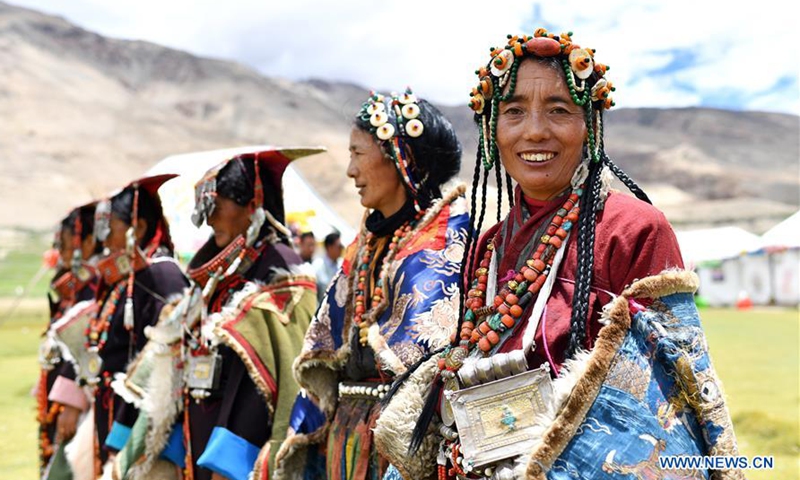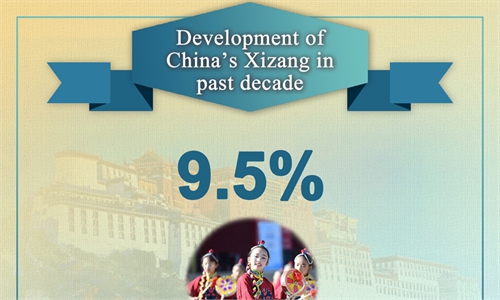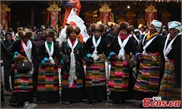Dalai Lama's successor to be finally approved by Chinese central government: experts

Women wearing Burang clothes are seen in Burang County of Ali, southwest China's Tibet Autonomous Region, July 28, 2020. Burang clothes, decorated with gold, silver, pearls and other jewels, has a history of more than 1,000 years. (Xinhua/Zhan Yan)
The Chinese central government will support and guide the work of finding the successor of the 14th Dalai Lama and the successor, like his predecessors, will be finally approved by the central government, experts on Xizang issues said.
The reaffirmation refuted reports from India media quoting Penpa Tsering, the current head of the "Tibetan government-in-exile," who claimed that "China will interfere with the Dalai Lama's succession."
"For years, the Dalai Lama himself has been making lies to fool people who are not clear about history and the facts," Zhu Weiqun, former head of the Ethnic and Religious Affairs Committee of the National Committee of the Chinese People's Political Consultative Conference, told the Global Times on Thursday.
The institution of the reincarnation of the Dalai Lama has been in existence for several hundred years. The 14th Dalai Lama himself was found and recognized following religious rituals and historical conventions, and the succession was approved by the then central government.
"This has already shown that the highest authority on the issue of the Dalai's succession does not belong to anyone, but is within the authority of the central government," Zhu noted.
Penpa Tsering jumped out to make the claim at this moment might be an attempt to echo US Senate's "Tibet-China Conflict Resolution Act" in late December, Xiao Jie, deputy director at the Institute of Contemporary Studies of the China Tibetology Research Center, told the Global Times.
In his new year sermons, the Dalai Lama said that "China tried to destroy Buddhism," The Hindustan Times reported on January 1.
"In fact, Chinese Buddhism has faced interference and the influence of separatist forces for a long time," Zhu said.
The 14th Dalai Lama has actually been betraying Tibetan Buddhism and the conventions of reincarnation of the living Buddha, Zhu said.
"He betrayed the motherland, trying in vain to turn the power belonging to the central government into his personal right, in order to achieve his separatist goals. He also betrayed Tibetan Buddhism by trying to destroy its historical conventions. He turned Tibetan Buddhism into a tool of separatism," Zhu noted.
In 1793, after dispelling Gurkha invaders, the Qing government restored order in Xizang and promulgated the Imperially Approved Ordinance for Better Governance of Xizang (the 29-Article Ordinance), improving systems by which the central government administered Xizang, according to the Xinhua News Agency.
The ordinance stipulated that the reincarnation of the Dalai Lama and other grand Living Buddhas has to follow the procedure of "drawing lots from the golden urn" and that the selected candidate would be subject to approval by the central government of China, the document said.



